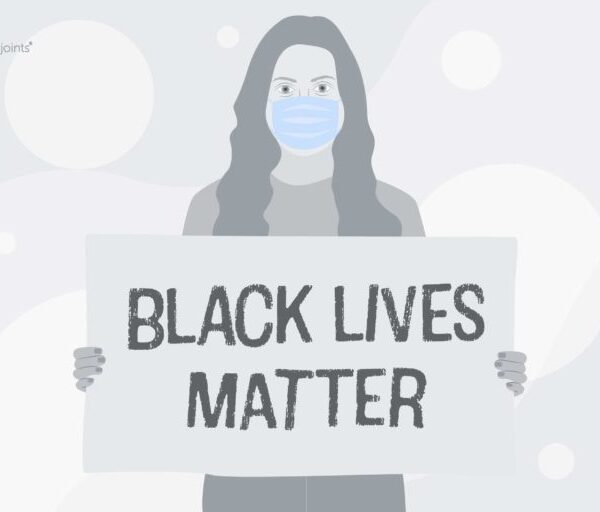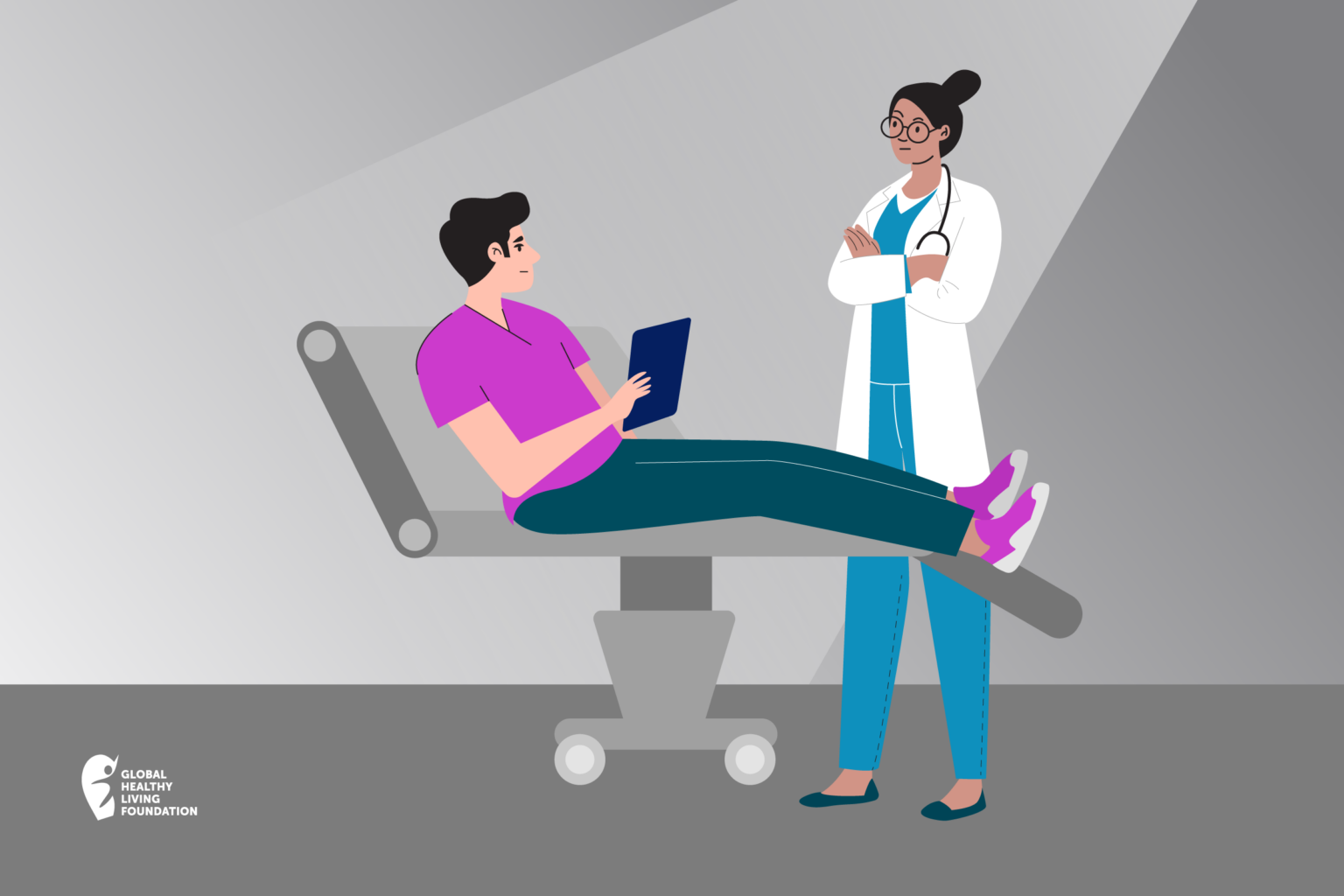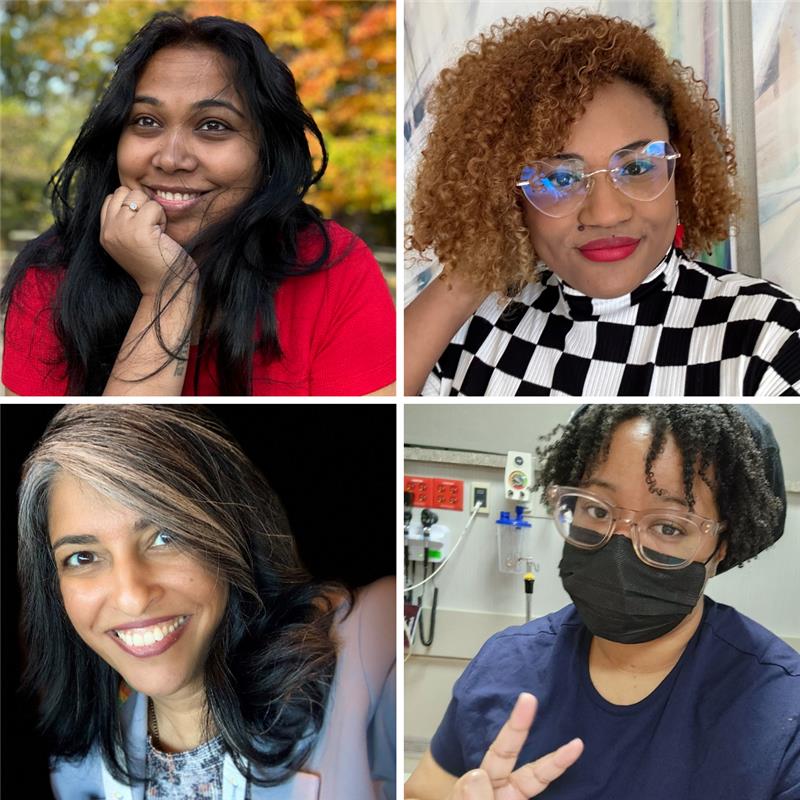"I am holding the trashcan on my lap when Chaka Khan starts to sing about female empowerment. I think: “
Sorry, Chaka, but it is not all in me today.”
HOW TO SAFELY FIGHT FOR RACIAL JUSTICE IF YOU’RE IMMUNOCOMPROMISED OR AT HIGH RISK FOR CORONAVIRUS
HOW TO SAFELY FIGHT FOR RACIAL JUSTICE IF YOU’RE IMMUNOCOMPROMISED OR AT HIGH RISK FOR CORONAVIRUS
June 7, 2020
GHLF STAFF

It is unbearably painful to see repeated instances of social injustice and hatred in our country. You may feel deeply hurt, angered, or frightened for yourself and your loved ones because of widespread racism against our black communities, but unable to walk alongside others like you who are determined to raise their voices against racism because of underlying health issues that can put you at increased risk for COVID-19 complications.
We understand that showing up to fight anti-black racism and to support the Black Lives Matter movement through participation in demonstrations in the middle of a deadly pandemic is not an easy to make decision to make for many of us who live with underlying conditions.
The Global Healthy Living Foundation and CreakyJoints, our arthritis patient community, conducted a poll of our members to understand what people were planning to do about the anti-racism protests, especially given that many of our members have been strictly quarantining for months. (In fact, a separate recent poll showed that more than half are still only leaving their homes to get essential items, if they’re even leaving their homes at all.)
While 5 percent of more than 500 respondents said they are participating in the ongoing racial justice demonstrations, 39 percent said they want to participate but feel they cannot due to the continued risk of coronavirus. Many are also coping with physical issues, such as being unable to stand or walk for lengths of time due to their arthritis or chronic pain conditions.
However, many people in our communities are finding other ways to support thousands of others in our fight for racial justice — and we are supporting our members, however they choose to get involved.
Because the Global Healthy Living Foundation firmly stands with the Black Lives Matter movement and because we are committed to fighting racial injustice and health care disparities, we issued a statement about this last week as well as a response to some of the hostile feedback that followed.
In an anonymous free-response section of the poll, one member noted: “I am in a COVID-19 high-risk group, so I have not been involved in the physical demonstrations, but I have made several small donations to the NAACP and Southern Poverty Law Center.”
Another member is researching ways to make a difference. “Having four autoimmune conditions, it’s not possible for me to be in a public gathering due to the risk of COVID-19, despite my strong desire to join the demonstrations,” they wrote. “I have been researching what I can do to support the anti-racist cause from a distance.”
Protests are one of the many ways Americans are making their voices, anger, and pain heard after the unjust deaths of George Floyd, Ahmaud Arbery, Breonna Taylor, and countless other black individuals in the United States and around the world. There is much that still needs to be done to eliminate inequality, systemic racism, explicit and implicit biases, institutionalized violence and police brutality in our society — and taking action drives meaningful change.
That said, gathering in large groups for any reason during COVID-19 carries its risks. This is particularly true if you are immunocompromised or live with a chronic underlying health condition that puts you at higher risks for severe infection and complications from COVID-19
“I’m concerned that we had mass gatherings on our streets when we just lifted a stay-at-home order, and what that could mean for spikes in coronavirus cases later,” said Washington, D.C. Mayor Muriel Bowswer on NBC’s Meet the Press. “In fact, I’m so concerned about it that I’m urging everybody to consider their exposure — if they need to isolate from their family members when they go home and if they need to be tested — because we have worked very hard to blunt the curve.”
How to Peacefully Protest Safely If You Have Underlying Health Conditions
The New York City Department of Health and Mental Hygiene shared tips to reduce the risk of spreading COVID-19 during large protests, which include:
- Wearing a face covering
- Staying hydrated
- Using hand sanitizer
- Not shouting (opt for signs and noise makers instead)
- Staying in small groups
- Keeping six feet from other people or groups
Our poll respondents who said they are participating in anti-racism demonstrations reported taking several of these measures to stay safe from COVID-19: 84 percent said they are wearing a mask, 60 percent are actively maintaining six feet of distance from other protesters, and 24 percent are wearing gloves.
Echoing the tips from the New York City Department of Health and Mental Hygiene, an open letter first drafted by University of Washington infectious disease experts and signed by hundreds of public health community professionals noted: “Staying at home, social distancing, and public masking are effective at minimizing the spread of COVID-19. To the extent possible, we support the application of these public health best practices during demonstrations that call attention to the pervasive lethal force of white supremacy.”
Some prevention strategies, however, may not be possible during protests — which have drawn hundreds of thousands in cities throughout the United States and around the world.
“I can see how some of these tips can be difficult to follow,” Elaine Nsoesie, PhD, an assistant professor of global health at Boston University, told NPR. “For example, if you are angry or frustrated about an issue, you want to express that feeling, and speaking is one way of doing that. It’s also hard to keep six feet of distance at a protest.”
What’s more, being outside doesn’t eliminate the risk of spreading COVID-19, though it is lower than being in a confined space. “Risk of transmission is lower in open spaces, but wherever there is a gathering there is still the risk of transmitting the virus,” said Dr. Nsoesie.
This is especially important to keep in mind if you may have a compromised immune system or comorbidities associated with COVID-19 complication, such as heart disease, lung disease, kidney disease, or diabetes.
How to Help the Fight for Racial Justice Aside from Protesting
If you can’t join protests because you are in a high-risk group for COVID-19 or have physical health issues, there are many other ways you can actively take a stand against racism and the systemic problems deeply rooted in American history and society. Here are just a few ways to support black communities right now.
1. Sign a petition
You can make your voice heard from home by signing a petition that demands change. Here is a sample of the many petitions available now:
George Floyd Act: Petition for Law Reform: This petition calls for law reform confronting police education, training, evaluations, procedures, and human rights and is designed to protect against prejudice, racism, and police brutality. It includes a demand to prohibit chokeholds and strangleholds and for police officers to be required to intervene when other officers use an unreasonable amount of force.
Make Acts of Racism Acts of Domestic Terrorism: This petition includes a demand to expand the definition of terrorism to cover “domestic racist organizations” and to immediately take law enforcement officers who kill a civilian in the line of duty into custody until a full investigation can be completed.
Demand Racial Data on Coronavirus: This petition includes a demand for the government to collect and release demographic data on COVID-19, and for the U.S. Centers for Disease Control and Prevention to aggregate and release data that provides black individuals with information and resources targeted to their needs.
More Black Lives Matter Petitions: This list of more than 300 petitions can help you support Black Lives Matter from home.
2. Get informed by reading books or watching films about racism
You can only learn so much by scrolling social media headlines. One powerful action you can take right now — particularly if you’re not black — is to learn more about the anti-racism struggle in America and around the world.
Many books and films explore and explain the roots of racism, violence, and white supremacy in our country. They can also help you celebrate black voices and better understand the triumphs and struggles of black people in America. Check out:
- This list of 43 books by black authors
- This list of anti-racist books recommended by educators and activists
- Amazon’s best-selling books about racism and discrimination
- This list of films about racism in America
Books can start necessary discussions with the children in your life about diversity, equality, and racism. Buy diverse children’s books to share with the young people in your life as well. Ruby Bridges, the first black child to integrate an elementary school in New Orleans in 1960, has said: “Racism is a grown-up disease, and we must stop using our children to spread it.” Check out:
- Coretta Scott King Book Award winners (this award is given to outstanding African American authors and illustrators of children’s and YA books that demonstrate an appreciation for African American culture and universal human values)
- 1,000 Black Girl Books Resource Guide
- Children’s Books Celebrating Black Boys
- This viral Twitter thread of books about race and racism compiled by a pre-kindergarten teacher
3. Donate to the cause
There are many organizations investing in black communities, purchasing protective equipment for protestors on the front lines, and much more. Here are just a few ways you can help:
Donate to Minnesota Organizations: This list from North Star Health will help you donate to organizations who are helping oppressed communities fight racial injustice in Minnesota, where George Floyd was killed. These organizations include Black Visions Collective, Reclaim the Block, and Black Table Arts.
Donate on a national level: There are also several national organizations you can donate to, including Black Lives Matter, NAACP, Equal Justice Initiative, Unicorn Riot, and Campaign Zero.
More ways to donate: This list of 115 ways to donate in support of black lives and communities of color per New York Magazine is organized by various causes, including victim memorial funds, community enrichment organizations, policy reform organizations, police reform organizations, and black LGBTQ funds.
4. Support black-owned businesses
Using your wallet to support black communities is a powerful way to create change in our society. Actively look for ways to support black business owners with these resources.
Buy from black businesses: You can find a number of businesses owned by black Americans on BlackWallet, Official Black Wall Street, and WeBuyBlack. Soon, businesses will be able to identify themselves as black-owned on Yelp, which will help you support local entrepreneurs. Here are just a few incredible businesses from which you can shop online now:
Diop: This Detroit-based clothing label offers diaspora-inspired streetwear and fabric face masks inspired by Mali mud cloth. Diop is donating a portion of mask proceeds to coronavirus relief initiatives.
Cherry Blossom Intimates: This company helps breast cancer survivors find the best post-mastectomy bra and breast form.
Beneath Your Mask: After the founder of this beauty brand was diagnosed with systemic lupus erythematosus (SLE) in 2011, she sought an all-natural approach to beauty and wellness. Her beauty products are non-toxic, organic, and revitalizing.
McBride Sisters Collection: Founded by sisters with a passion for wine, this brand offers premium wines from California and New Zealand.
Red Bay Coffee: You can buy a vast array of quality coffee, apparel, and drinkware from this company, which aims to employ people traditionally left out of the specialty coffee industry — particularly people of color, formerly incarcerated individuals, women, and people with disabilities.
Invest with black banks and credit unions: Bank Black will help you find black-owned banks and credit unions. OneUnited Bank is America’s largest black-owned bank that aims to make financial literacy a core value of the black community.
5. Contact your representatives
Make your voice heard from home by contacting government representatives at all levels (local, state, and federal) who control budgets and policy in the United States. Write, call, or email your representatives to condemn and demand action on issues such as racial injustice and police brutality.
These resources will help you get started:
- How to Contact Your Elected Officials
- Look Up Your Local Elected Representatives
- Call Your House Representative (this campaign from Ayanna Pressley and other U.S. representatives condemns police brutality, racial profiling, and use of excessive force)
For more ways to stay connected to the Global Healthy Living Foundation and take part in our grassroots advocacy, including against racial health care disparities, join our 50-State Network.
SUBSCRIBE TO GHLF
RELATED POST AND PAGES
_
Was this article helpful?
YesNo



